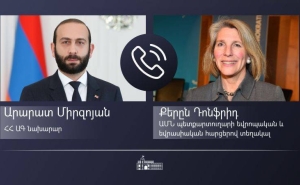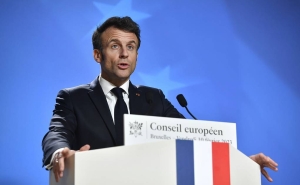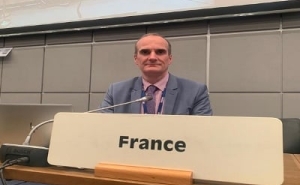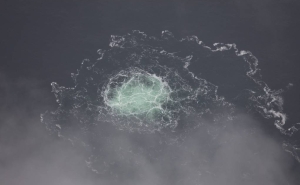 Who should Be Blamed for the Political Deadlock Between Israelis and Palestinians?
Who should Be Blamed for the Political Deadlock Between Israelis and Palestinians?

The Israeli-Palestinian conflict is one of those prolonged conflicts of the world the resolution of which does not seem to be near. The reason is that there are issues the sides are not ready to compromise, in addition to this violence and hostility remains almost at the same level, with certain escalations from time to time. In early October of 2015 the situation again escalated with both Israelis and Palestinian being killed in separate attacks.
The two-state solution is the most advocated one by the world, especially by the US. This envisages creation of an independent State of Palestine along with the State of Israel. However, the boundaries between the two states is not being specified in this solution, as this is the main subject for dispute and it is left to be agreed through negotiations. During the last meeting of the US State Secretary John Kerry and the Palestinian leader Mahmoud Abbas, Kerry again emphasized his desire to achieve a two-state solution to the ongoing Israel-Palestine conflict. Main emphasis was made an inflammatory rhetoric, regarding it as a hindering factor for deescalation of the situation. "The Secretary continued to urge for calm and a decrease in violence, incitement and inflammatory rhetoric," State Department spokesman John Kirby said in a statement, Deutsche Welle reports.
Now the two-state solution is very actively being circulated by France. The former French Foreign Affairs Minister Laurent Fabius, when still in his post, said that France wants to initiate Israeli-Palestinian peace talks - a three-step process, which presupposes to consult with both sides, convene an international support group, and convene an international summit to restart talks. "France will engage in the coming weeks in the preparation of an international conference bringing together the parties and their main partners, American, European, Arab, notably to preserve and make happen the two-state solution," France24 quotes Fabius’ words.
The reactions to this initiative by the Israeli and the Palestinian sides were, as expected, different. Taking into account the tendency of recognizing Palestinian state in Europe, the last one being the Vatican, Israel, of course, rejected this proposal, not even wanting to try to change the format of negotiations and the mediator, as the US is still regarded by Israel as the most reliable ally.
"The French initiative, as it has been published, is questionable. It says, ‘we will hold an international conference, but if you do not succeed, we are already predetermining the result and we will recognize a Palestinian state,’" Israeli Prime Minister Benjamin Netanyahu said, adding that the conference is doomed to fail, BreakingIsraelNews reports.
The Palestinian side, however, was more than happy for this initiative and welcomed the proposal, the Palestinian leader Abbas expressing hope that an international group would be formed after the conference to support the negotiations.
The US, which is the international mediator in the Israeli-Palestinian conflict, has not expressed any position on the French proposal. This was not even discussed during Kerry-Abbas meeting on February 21, instead Abbas requested that the US intervened in the political deadlock between Israelis and Palestinians.
Of course, it is not in the interests of the US to lose its leverage on Israel and quit its role in the Israeli-Palestinian conflict. However, the time showed that the efforts of the US has not given much results and the reason is that the sides do not show any political will to the resolution of the conflict, none of them are ready for compromises and do not lose the opportunity to threaten each other with the use of force, which, actually, witness today. These are the main reasons for the deadlock of the negotiations and the failure of the US as a mediator. In addition to this, in regard with the Iranian nuclear deal, the US-Israeli relations became quite strained, as Israeli Prime Minister was blaming the US that the deal was not enough to restrain Iranian nuclear projects with bomb-making potential, claiming that Iran is a threat for the existence of Israel.
During the recent period the passivity of the US in this conflict is also conditioned by another factor – presidential elections. Most likely, no serious steps, except statements and calls by the US President Barack Obama would be expected and the burden of further steps would be left to the next president and those steps would depend on the position of the elected president.
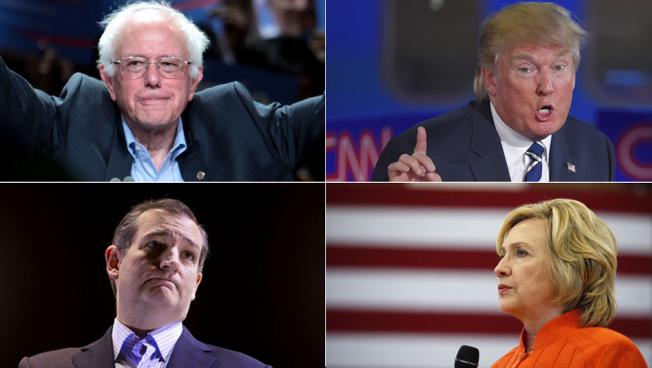
Currently the most popular US presidential candidates have different positions on the Israeli-Palestinian conflict. Hillary Clinton from the Democratic Party claims that Israel is the US ally and if she becomes the US president, she will defend and do everything she can to support Israel, at the same time adding that the Palestinians deserve to have a state of their own. "That's why I support a two-state solution," Haaretz.com quotes Clinton’s words. ©news.wgbh.org
The Republican Trump, on the contrary, prefers to be neutral on this issue - words, which were blasted by another Republican candidate Ted Cruz. "As president, I have no intention of being neutral. As president, I will be unapologetically alongside the nation of Israel," Cruz said, The Hill reports. As for the Jewish American US presidential candidate Bernie Sanders, the US should play a "leading role" in creating a two-state solution based on "compromise". "The Palestinians must unequivocally recognise Israel's right to exist, and hold accountable those who have committed terrorist acts. The Israelis must end the blockade of Gaza, and cease developing settlements on Palestinian land." This is how Sanders imagines the settlement of Israeli-Palestinian conflict, Al Jazeera reports.
To sum up, it becomes obvious that the US policy towards the Israeli-Palestinian conflict would change only in case the US President becomes either Donald Trump or Bernie Sanders. As for the conflict and its future developments in general, unless the sides express willingness to stop violence, war rhetoric, sit down around a negotiation table and be ready for compromises, no international player will be able to record a step forward in this process.
Other materials on this subject
- Israeli Army Neutralizes Hamas Tunnel In Northern Gaza Strip The tunnel with two routes was dug toward Israeli territory but did not cross the newly-constructed underground sensory barrier and thus did not pose a threat to neighboring communities, the military said.
- Al Jazeera journalist shot and killed during Israeli raid in West Bank The Qatar-based network interrupted its broadcast to announce her death.
- Israel and Hamas Agree Gaza Ceasefire after 11 Days of Fighting The development came amid growing global alarm about the bloodshed, with US President Joe Biden urging Israeli Prime Minister Benjamin Netanyahu to seek de-escalation, and mediation bids by Egypt, Qatar...
- US for 3rd Time Blocking Security Council Joint Statement Calling for Ceasefire between Israel and Hamas The statement was introduced by Norway, Tunisia and China following today’s emergency session on the escalation in Israel and Gaza and criticized both sides for the ongoing violence.
- Israeli Aircraft Strike in Gaza The airstrikes came in retaliation after 13 rocket launches from the Gaza Strip into Israeli territory were identified earlier in the morning, eight of which were intercepted by the Iron Dome missile defense...
-
 17:08
17:08The regular session of the Anti-corruption Policy Council takes place in Jermuk
-
 15:05
15:05The Prime Minister sends congratulatory messages to the supreme leader of Iran and the President of Iran
-
 11:11
11:11Armenia sends earthquake aid to Turkey
-
 10:43
10:43Commemoration of the Pontiff St. Sahak Partev
-
 09:16
09:16Some roads are closed and difficult to pass in Armenia
-
 19:55
19:55Phone conversation of the Foreign Minister of Armenia with the U.S. Assistant Secretary of State for European and Eurasian Affairs
-
 18:30
18:30Prime Minister Pashinyan and President Khachaturyan meet
-
 18:20
18:20Ararat Mirzoyan with Co-Chairman of the OSCE Minsk Group of France Brice Roquefeuil
-
 17:01
17:01Humans could land on Mars within 10 years, Musk predicts
-
 16:45
16:45France, US urge 'immediate' end to Nagorno Karabakh blockade
-
 16:01
16:01Blockaded Nagorno Karabakh launches fundraiser to support quake-hit Syria
-
 15:59
15:59Earthquake death toll in Turkey rises to 18,342
-
 15:43
15:43Ararat Mirzoyan Held a Telephone Conversation with Sergey Lavrov
-
 15:06
15:06French president rules out fighter jet supplies to Ukraine in near future
-
 14:47
14:475 Day Weather Forecast in Armenia
-
 14:44
14:44President Vahagn Khachaturyan wrote a note in the book of condolences opened in the Embassy of Syria in Armenia
-
 14:20
14:20Azerbaijan’s provocations impede establishment of peace and stability – Armenian FM tells Russian Co-Chair of OSCE MG
-
 12:57
12:57France representation to OSCE: Paris calls on Azerbaijan to restore freedom of movement through Lachin corridor
-
 11:40
11:40Command of Kosovo forces highly appreciated preparation of Armenian peacekeepers
-
 10:16
10:16The United States withdrew from sanctions against Syria for six months the provision of assistance after the earthquake
day
week
month
Humidity: %
Wind: km/h


